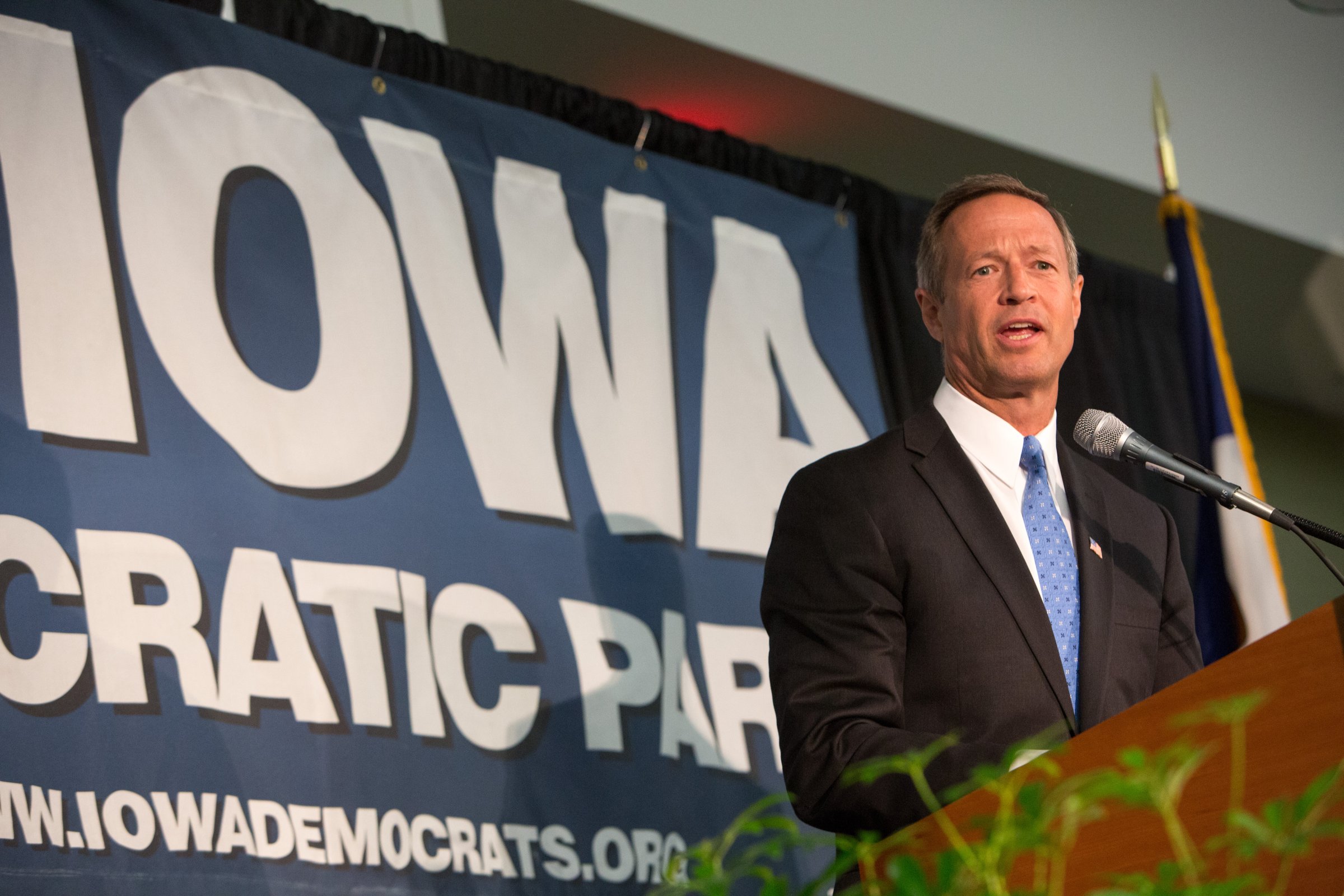
Eighteen months before the first presidential caucus of the 2016 campaign, both Democrats and Republicans are again turning their backs on a vulnerable group of voters—Iowans serving in the military overseas.
Despite renewed calls to reform the complicated process that has long excluded overseas military voters, both political parties are slow-walking efforts at change. Caucus rules require voters to be present in person at caucus sites for hours, usually on a weeknight. The exact number of servicemen and women who are not able to participate because of the custom is not known. In the 2012 general election, 4,400 Iowans voted from outside the United States, including those serving in the military.
Republicans will meet in Chicago this week to finalize their rules for the 2016 cycle, while Democrats will put the finishing touches on their rules later this month in Atlanta. As they stand, the Democratic Party’s rules don’t include a special provision for military voters in their lengthy accessibility guidelines, while the GOP’s provisions have been rendered largely unenforceable.
At a meeting of the DNC’s Rules and Bylaws Committee in Washington on Friday, Iowa Democratic Chair Scott Brennan explained that Iowans simply don’t want to change the way they’ve always done things. “Iowans did not want us to take any steps that would change what our caucuses are at their core—neighborhood gatherings of concerned and interested Iowans who want a say in the future of our country,” he said.
On the eve of the 2012 Republican National Convention in Tampa, a group of GOP operatives sought to change the party’s rules to require that military voters be included in any contest to select the party’s presidential nominee in 2016 “by every means practicable.” After a reporter published the draft text of the amendment, the Iowa delegation went into overdrive to neuter it, inserting language that effectively allowed their first-in-the-nation caucus to avoid making it easier for service members to cast ballots. “We need to not lose the nature of the caucuses,” said Iowa’s Republican Gov. Terry Branstad, warning that absentee ballots for military voters would effectively turn the caucuses into a primary.
The caucuses are notable for their on-site campaigning, and in the case of Democrats, multiple rounds of voting as the party eliminates non-viable candidates. Defenders of the caucus process point to the special nature of neighbors joining with neighbors to learn about and debate the issues and candidates of the day. But today’s caucuses are the capstone of two years of political visits, paid television and direct mail campaigns. Polls leading up to both the 2008 and 2012 caucuses proved to be reliable—meaning on balance caucus-goers made up their minds before walking into the gatherings.
In both party systems, the caucuses select delegates to the county conventions, which in turn select delegates to statewide conventions. This is another fact often cited by defenders of the caucus process, but the outcome is not always determined by a plurality of voters. In 2012, Mitt Romney was declared the winner of the caucuses within hours, only to be supplanted days later by Rick Santorum once all the ballots had been counted. But Ron Paul won the state’s delegates after his backers took over the county and state conventions. The RNC acted earlier this year to prevent such a confusing outcome by requiring that the state’s delegates be allocated according to the outcome of the caucus presidential preference poll, effectively turning the Republican caucus into a vote similar to a primary.
In 2008, then-Sen. Hillary Clinton complained that her poor showing in the caucus was partly a result of the inability of those who work at night to participate in the process. Iowa Democrats are currently planning for a way to allow caucuses to be held in more locations, including qualifying workplaces, to partly address this concern.
On Friday, the state Democratic chair, Brennan, announced that the party wouldn’t pursue absentee ballots, but would seek a state law to turn caucus-day into a quasi-holiday, requiring employers to make provisions to give employees time off. And the Democrats are studying how to create a tele-caucus for military voters serving overseas—at best a partial solution, given the logistical nightmare getting all U.S. service-members on the phone that night. Republicans say they are studying the Democratic proposals.
The issue is not unique to Iowa. A number of states use caucuses and conventions to select their presidential candidates, and exclude military voters, including fourth-in-the-nation Nevada.
The Military and Overseas Voter Empowerment Act which passed in 2009 requires that states provide military voters, along with other Americans living abroad, with absentee ballots for primary voting. But the Iowa caucuses are party-run—a fact to blame for the turbulent handling of the 2012 Republican caucuses—and exempt from the statute, explained Capt. Samuel Wright (Ret.), the director of the Service Members Law Center. Congress could have required caucuses to make provisions for those in the military, Wright said, “but they didn’t want to upset Iowa.”
Officials at the White House, DNC, and RNC are all loathe to discuss the issue publicly for fear of upsetting the politically powerful state. More significantly, so are the potential 2016 candidates, many of whom frequently tout their support for those serving in the military.
More Must-Reads from TIME
- Donald Trump Is TIME's 2024 Person of the Year
- Why We Chose Trump as Person of the Year
- Is Intermittent Fasting Good or Bad for You?
- The 100 Must-Read Books of 2024
- The 20 Best Christmas TV Episodes
- Column: If Optimism Feels Ridiculous Now, Try Hope
- The Future of Climate Action Is Trade Policy
- Merle Bombardieri Is Helping People Make the Baby Decision
Contact us at letters@time.com